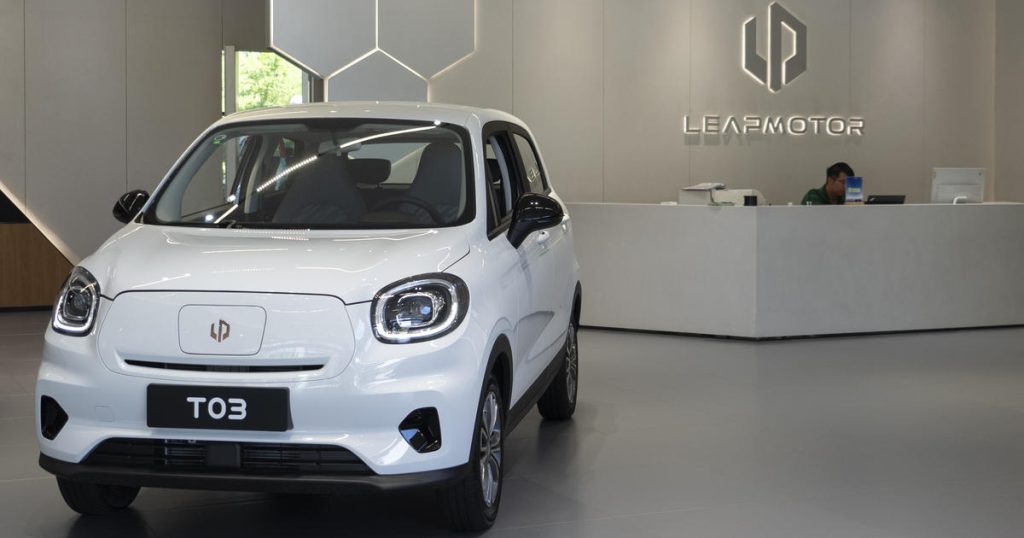President Biden recently announced an increase in tariffs on Chinese electric vehicles in an effort to prevent China from undercutting U.S. automakers by flooding the market with less expensive EVs. Some Democratic leaders, including Sen. Sherrod Brown of Ohio and Rep. Elissa Slotkin of Michigan, have raised concerns about potential national security threats posed by Chinese-produced consumer devices. They fear that Chinese EVs could be used for hacking or spying, allowing China to collect sensitive data on traffic patterns, infrastructure, and individuals in the U.S. The move to quadruple tariffs was not specifically aimed at addressing these national security concerns, but rather to protect U.S. companies and union manufacturing jobs.
The tariff increase on Chinese EVs is part of the administration’s efforts to prevent Chinese automakers from dominating the market with inexpensive vehicles that could threaten American companies. Chinese EVs are significantly cheaper than those produced in the U.S., costing as little as $10,000 to $12,000 due to factors like government backing, cheap labor, and supplies. The tariff hike aims to level the playing field for U.S. automakers and prevent China from capturing a significant share of the market, as seen in Europe where Chinese EVs have become popular. However, the administration is not considering banning Chinese-made EVs, despite concerns over potential national security risks posed by internet-connected vehicles.
The issue of national security and data privacy is a major concern surrounding Chinese-made EVs. Chinese companies may be required to share data with the Chinese government, raising fears about the potential for surveillance and espionage. While the new tariffs address the economic aspects of national security, they do not entirely alleviate the privacy and spying concerns associated with internet-connected vehicles. Industry experts warn that these vehicles collect sensitive data on drivers, including personal information, biometric data, and location details, which could be exploited by foreign adversaries like China. The administration’s focus on tariffs is primarily aimed at protecting U.S. workers and industries while addressing unfair trade practices by China.
The decision to implement higher tariffs on Chinese EVs stems from a review of Trump-era tariffs on China conducted by U.S. Trade Representative Katherine Tai. This review found that China continues to engage in unfair business practices, leading to the imposition of tariffs under Section 301 authority. The Biden administration’s actions are focused on protecting American workers and strategic sectors from foreign competition rather than addressing broader national security concerns. While some Republicans also support tariff increases on Chinese-made electric vehicles, the administration’s main goal is to safeguard U.S. industry and prevent China from undermining American companies through unfair trade practices.
Overall, the move to quadruple tariffs on Chinese EVs reflects the administration’s efforts to protect U.S. companies from foreign competition and maintain a level playing field in the electric vehicle market. While concerns about national security risks associated with Chinese-made consumer devices persist, the focus of the tariff hike is primarily on economic factors and trade practices. By addressing unfair competition from China and protecting American manufacturing jobs, the administration aims to support domestic industries while navigating the complex challenges posed by global trade and technology.


